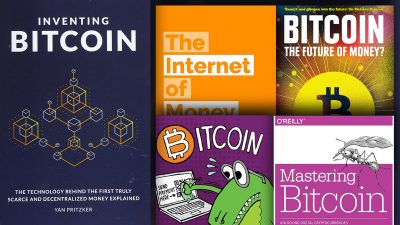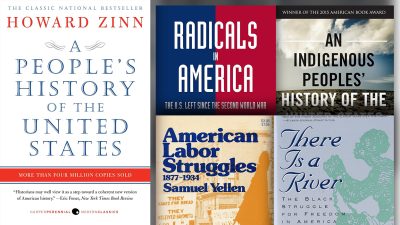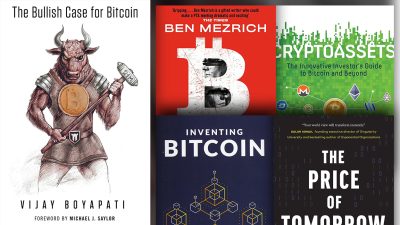10 Books to Read If You Love Guns, Germs, and Steel
If you are fascinated by Guns, Germs, and Steel and want to dive deeper into books like Guns Germs and Steel, you’re in the right place. This Pulitzer Prize-winning human civilization non-fiction masterpiece by Jared Diamond, published in 1997, reshaped how we understand global inequalities. Diamond’s work explains why some societies flourished while others did not, attributing these differences to geography, ecology, and environmental factors rather than race or culture. Its global impact extends beyond the book itself, inspiring a popular PBS documentary that brought these groundbreaking insights to an even wider audience.
The power of Guns, Germs, and Steel lies in its unique blending of anthropology, history, and ecology to tell the story of human societies. It offers readers a scientific yet accessible narrative that satisfies those curious about the forces shaping world history. For readers interested in books like Guns Germs and Steel, understanding those underlying factors is essential to exploring broader human civilization non-fiction and books about world history that explore similar themes.
This post presents 10 books to read if you love guns, germs, and steel, carefully curated to continue your journey into the dynamic histories of civilizations worldwide.
What Are These Book Recommendations Based On?
Before diving into the list, it’s important to understand the criteria behind these selections of books like Guns Germs and Steel. Each title was chosen because it shares key qualities that echo Jared Diamond’s approach but also adds unique perspectives.
These recommendations emphasize global historical perspectives—covering wide geographic areas and varied time periods, mirroring Diamond’s transdisciplinary and comparative style. They do not restrict themselves to a single region or culture but explore civilizations across continents and epochs.
Focus strongly on anthropological and environmental insights, analyzing how natural surroundings, biological factors, and cultural practices impact human evolution and societal development. This spotlight on ecological and cultural interplay is a hallmark of “Jared Diamond similar books,” reinforcing how environment and culture shape civilization.
All these works examine the development of human civilization through lenses of ecology, technology, and cultural change. They expand on or complement the themes found in Guns, Germs, and Steel, approaching the complexities of history with both rigor and readability.
Lastly, these books balance academic depth with engaging storytelling. They are accessible reads that avoid over-technical language but maintain rich, insightful content. Classified as human civilization non-fiction and books about world history, they provide enriching context and new ways to understand the forces behind global historical patterns.
If you are searching for books like Guns Germs and Steel rooted in interdisciplinary research and global storytelling, these ten selections are ideal.
1. Sapiens: A Brief History of Humankind by Yuval Noah Harari (2011)

Genre: Human civilization non-fiction, history
Themes: Human evolution, cognitive revolution, societal development
One-Sentence Review: An accessible, sweeping account of human history from the Stone Age to the present day.
What you can expect:
- A deep dive into major turning points like the Agricultural Revolution and Scientific Revolution.
- Exploration of how myths, religion, and shared beliefs helped unite large groups of humans.
- A broad, global lens that complements Guns, Germs, and Steel by combining biological and cultural transformations.
Sapiens offers an engaging, thought-provoking narrative that enriches understanding of humanity’s shared journey across time, making it a must-read for admirers of human civilization non-fiction.
2. Collapse: How Societies Choose to Fail or Succeed by Jared Diamond (2005)

Genre: Environmental history, human civilization non-fiction
Themes: Environmental sustainability, societal resilience, historical case studies
One-Sentence Review: Diamond explores why some societies collapse under environmental pressures while others adapt and thrive through smart choices.
What you can expect:
- A series of detailed case studies from both ancient and modern societies.
- An in-depth look at how environmental conditions and human decisions combine to determine the fate of civilizations.
- A continuation of Guns, Germs, and Steel‘s themes, delving specifically into environmental challenges and survival strategies.
This book is an essential read for those who want a deeper understanding of how ecological factors influence human history within the broad domain of books like Guns Germs and Steel.
3. 1491: New Revelations of the Americas Before Columbus by Charles C. Mann (2005)

Genre: World history, anthropology
Themes: Indigenous civilizations, pre-Columbian cultural complexity, environmental engineering
One-Sentence Review: Mann reveals a vibrant pre-European America shaped by sophisticated societies and engineered environments.
What you can expect:
- A wide range of archaeological and ecological evidence illustrating the scale and advancement of Native American civilizations before 1492.
- Discussions on how indigenous peoples transformed landscapes to sustain large populations.
- A corrective to Eurocentric views, offering a complementary perspective to Guns, Germs, and Steel by broadening world history narratives.
Recommended for readers intrigued by global history and ecological impact, this book reshapes understanding of the Americas’ role in human civilization.
4. A People’s History of the World by Chris Harman (1999)

Genre: Global history, social history
Themes: Class struggle, technological innovation, popular movements
One-Sentence Review: Harman presents world history from the perspective of ordinary people, showcasing grassroots influences on political and technological change.
What you can expect:
- Emphasis on the day-to-day experiences of common people rather than elite actors.
- A broad, non-Eurocentric narrative covering multiple continents.
- A people-focused complement to the structural, environment-driven analysis of Guns, Germs, and Steel.
This book offers a powerful alternative lens in the human civilization non-fiction genre, ideal for readers looking for bottom-up narratives in global history.
5. Civilization: The West and the Rest by Niall Ferguson (2011)

Genre: History, comparative civilizations
Themes: Institutions, competition, Western dominance
One-Sentence Review: Ferguson outlines six “killer apps” — including rule of law and scientific innovation — that explain Western global dominance.
What you can expect:
- Rigorous examination of institutional factors behind economic and political success.
- Explores competition, science, property rights, medicine, consumption, and work ethic as keys to Western power.
- Engages actively with questions about why certain societies flourish, resonating with Jared Diamond’s inquiries.
This provocative history enriches the conversation started by Guns, Germs, and Steel about civilization dominance and development.
6. A Short History of Nearly Everything by Bill Bryson (2003)

Genre: Popular science, human civilization non-fiction
Themes: Scientific discovery, history of knowledge, interconnected natural phenomena
One-Sentence Review: Bryson makes complex scientific ideas approachable, linking discoveries to humanity’s place in the universe.
What you can expect:
- Clear explanations of scientific breakthroughs that underpin modern civilization.
- A humorous yet informative look at the history of scientific thought.
- Adds breadth to books like Guns Germs and Steel by focusing on the science intrinsic to human progress.
Perfect for readers seeking an entertaining scientific perspective on global history.
7. The Third Chimpanzee: The Evolution and Future of the Human Animal by Jared Diamond (1991)

Genre: Evolutionary biology, anthropology
Themes: Human evolution, animal behavior, cultural development
One-Sentence Review: Diamond examines human origins, showing both our deep connection to other primates and unique cultural traits.
What you can expect:
- Exploration of art, language, and agriculture through an evolutionary lens.
- Insight into what physically and behaviorally distinguishes Homo sapiens from other species.
- Lays the conceptual groundwork that Diamond elaborates in later works like Guns, Germs, and Steel.
A foundational read in human civilization non-fiction for fans wanting to understand humanity’s biological roots.
8. The Origins of Political Order by Francis Fukuyama (2011)

Genre: Political science, world history
Themes: State formation, political institutions, cultural evolution
One-Sentence Review: Fukuyama traces how political organizations developed from tribal to modern states across world societies.
What you can expect:
- Comparative analysis of governance across civilizations.
- Examination of how cultural and environmental factors influence institutional development.
- Complements Diamond’s geographical and ecological focus with political science and cultural insights.
This book is an accessible, scholarly guide to understanding the birth and evolution of political systems worldwide.
9. Why the West Rules—For Now by Ian Morris (2010)

Genre: World history, comparative analysis
Themes: Geography, societal development, power dynamics
One-Sentence Review: Morris combines data and history to explain the fluctuating balance of power between East and West over millennia.
What you can expect:
- Use of “social development index” to quantify societal progress.
- Detailed tracking of environmental, technological, and cultural changes globally.
- Provides a rigorous, data-driven perspective that nuances Diamond’s ecological explanations.
Essential reading for those interested in comprehensive, analytical views on civilizational rise and fall.
10. Against the Grain: A Deep History of the Earliest States by James C. Scott (2017)

Genre: Anthropology, critical history
Themes: Agricultural revolution, state power, freedom, health
One-Sentence Review: Scott challenges traditional views, arguing early agriculture and state formation often reduced health and freedom.
What you can expect:
- A critical reassessment of the costs and benefits of the rise of agriculture and centralized states.
- Insights into the coercive nature of early governments and how they shaped societies culturally and politically.
- A thought-provoking contrast to the more optimistic narratives in books like Guns, Germs, and Steel.
A compelling, original contribution for readers seeking nuanced critiques of human civilization’s origins.
Conclusion
For readers captivated by Guns, Germs, and Steel, this curated list offers 10 books to read if you love guns, germs, and steel — essentials in the world of books like Guns Germs and Steel that illuminate the grand narratives of civilization development. These titles collectively provide a broad, scientifically grounded understanding of human history, echoing Jared Diamond’s signature integration of geography, ecology, technology, and culture.
Whether you seek to expand your knowledge of environment-driven societal change, political evolution, or cultural transformation, these books about world history deliver rich, accessible insights into the forces shaping the human journey. If you enjoy human civilization non-fiction and want to explore “Jared Diamond similar books,” these recommendations serve as gateways to deeper perspectives on how geography and ecology have crafted the world we live in.
Expand your grasp of the past and better understand the present with these profound works that continue the quest to explain human civilization’s diverse pathways.
Explore these titles and enrich your understanding of our shared global story.



